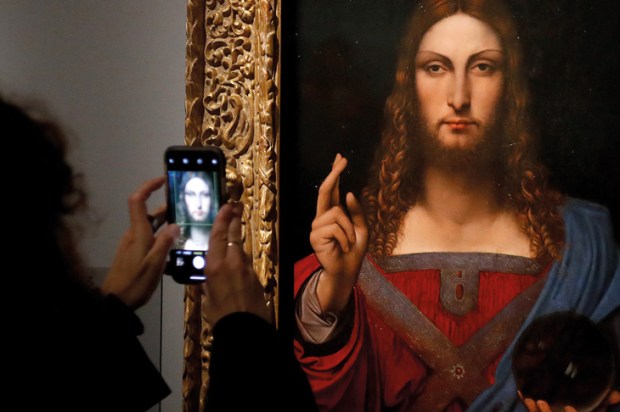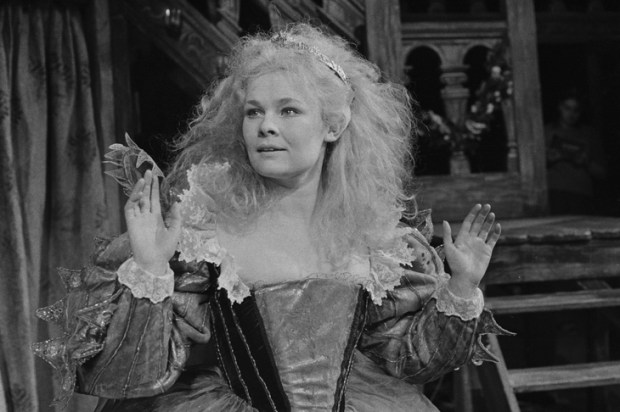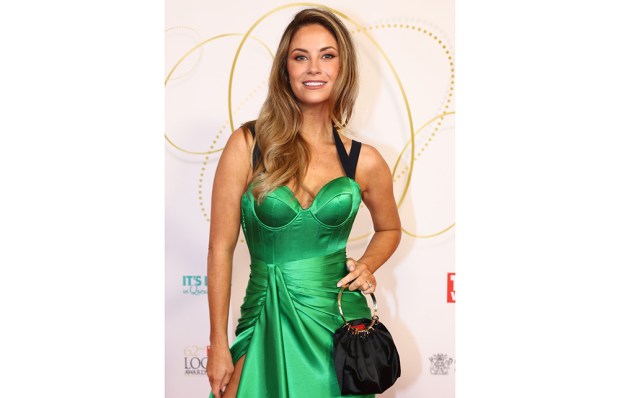If you wanted confirmation that the world can change dramatically you need only remember the Berlin Wall coming down in 1989 and the end of what we had imagined was the thousand-year Reich of the Soviet Union.
Well, Binge are showing a superbly crafted dramatisation by ZDF of the last days of a divided Germany which is centred round three sisters. Commanding it is the GDR administrator Margot (Barbara Auer) who has secreted enough money to buy a house (and then some); there is Ina (Nicolette Krebitz) who has written repeatedly to her children from the West but whose letters have been destroyed by the family matriach (Angela Winkler) who belongs to the so-called red nobility of East Germany for having fought the Nazis; and finally the gentle dissident Lotte (Nadja Uhl) who runs a bookshop and keeps trying and failing to keep her teenage son safe.
Berlin Wall is magnificently produced and acted. It gives an absolutely convincing portrait of Germany at the crossroads and of the concerted endeavours of Margot to get her young nearest and dearest across to the West and the heartbreak that comes when a lovely teenage girl repudiates her mother.
There is nothing flashy about Berlin Wall. Every inch, every syllable about it testifies to the ambition to show the past as it actually was. This is the East Germany of the Stasi and communist oppression but everything about it testifies to the tragic predicament of people caught in the middle of two incompatible worlds and the devil’s bargain that was made between them but the emphasis is on the human faces. We can feel the charm of the male hustlers, of politics, the people driven – against any temperamental pull – to murder or suicide.
It is a superb streamer and the way it captures the human side of what happened when Chancellor Kohl gave the Eastern currency parity with the Deutschmark is breathtaking and bloodcurdling.
Would it be wrong to list the stage productions of Thomas Ostermeier among the crimes, or afflictions, of German history? Yes, but at the Melbourne Festival in 2012 we saw a production of Ibsen’s An Enemy of the People replete with shouted questions from the audience that was a dazzling testament to the director’s capacity to send valentines to himself though it had some seasoned theatre-goers transported with admiration.
Now we have Ostermeier directing Chekhov’s The Seagull at London’s Barbican with Cate Blanchett as the actress Arkadina and Kodi Smit-McPhee – remember him as the boy in The Road?– as her son Konstantin.
Blanchett apparently gets to sing ‘Let It Be’ and Bob Marley’s ‘Three Little Birds’. She is encouraged to present herself as a cartoon celebrity wearing a tee shirt with her name on. She tap dances, she does the splits. Clive Davis in the UK Times says the production is like a classic done with ‘children’s crayons’.
Tom Burke – the sleuth Strike in the TV version of J.K. Rowling’s Galbraith detective stories as well as the sometime disciple of Alan Rickman – is apparently pulled back as Arkadina’s partner Trigorin and Emma Corrin (the second last Diana in The Crown) is apparently very fine as Nina, the girl who falls in love with him.
In the early-1980s if you were lucky enough you could see Vanessa Redgrave in Melbourne’s Dallas Brooks Hall recite, ‘I’m a seagull. No that’s not it’ and use it to carry the cumulative weight of this great play.
In 2012 Romala Garai was a fine Nina in the Trevor Nunn production of The Seagull with Frances Barber as Arkadina and Ian McKellen as the uncle Sorin. It’s difficult to expect to see it bettered and it tallied with Clive Davis’s suggestion that the most radical thing you could do with The Seagull would be to re-introduce samovars and frock coats. None of which diminishes the fascinating prospect of seeing Blanchett and co. do this very great play.
In 2009 Blanchett was a very presentable Richard II in Benedict Andrews’ The War of the Roses. And her Blanche in Streetcar – was not less arresting for being a cavalcade of hypothetical Blanches rather than a single coherent one, never mind the cracks about the Nordic direction by Ingmar Bergman’s legendary partner, Liv Ullman. But Ostermeier’s fiddly theatrical infantilism – however brilliant – is an ambiguous asset.
And sometimes you just want to get out from under endless re-jigs. Visconti – one of the greatest of all directors – gave us his film of Thomas Mann’s Death in Venice which is a staggering homage to the German representation of besotted obsession and heartbreak. And if you want the great Marxist count’s take on the lead up to Hitler’s Germany there is The Damned – again with Dirk Bogarde.
But do we really need a TV streamer of The Leopard? When the novel appeared in 1958 it was hailed by the likes of E.M. Forster and Frank Kermode as ‘effortlessly exotic and wise’. And so too is the cinematic masterpiece Visconti made of Lampedusa’s Il Gattopardo. The streamer looks overblown and epical. And why should we need it when the film with Burt Lancaster as the Prince Fabrizio, Alain Delon as his nephew Tancredi and Claudia Cardinale as Angelica are like the platonic idea of how we imagine these characters.
It doesn’t matter that Visconti collapses the last scene into the very extended ball sequence. We simply trust him as the voice of exact modulation in perfect accord with the work it shapes and reconfigures but never for a moment betrays.
Listen to Corin Redgrave’s superb audio recording of the book which Visconti captures out of pure affinity.
The opening of The Leopard in the superb translation by Archibald Colquhoun is the best clue to why L.P. Hartley said of Lampedusa’s one dazzling book, ‘Perhaps the greatest novel of the century.’
‘Nunc et in hora mortis nostrae. Amen.’
The daily recital of the Rosary was over. For half an hour the steady voice of the Prince had recalled the Glorious and the Sorrowful Mysteries; for half an hour other voices had interwoven a lilting hum from which, now and again, would chime some unlikely word: love, virginity, death; and during that hum the whole aspect of the rococo drawing room seemed to change; even the parrots spreading iridescent wings over the silken walls appeared abashed; even the Magdalen between the two windows looked a penitent and not just a handsome blonde lost in some dubious daydream, as she usually was.
Got something to add? Join the discussion and comment below.
You might disagree with half of it, but you’ll enjoy reading all of it. Try your first month for free, then just $2 a week for the remainder of your first year.













